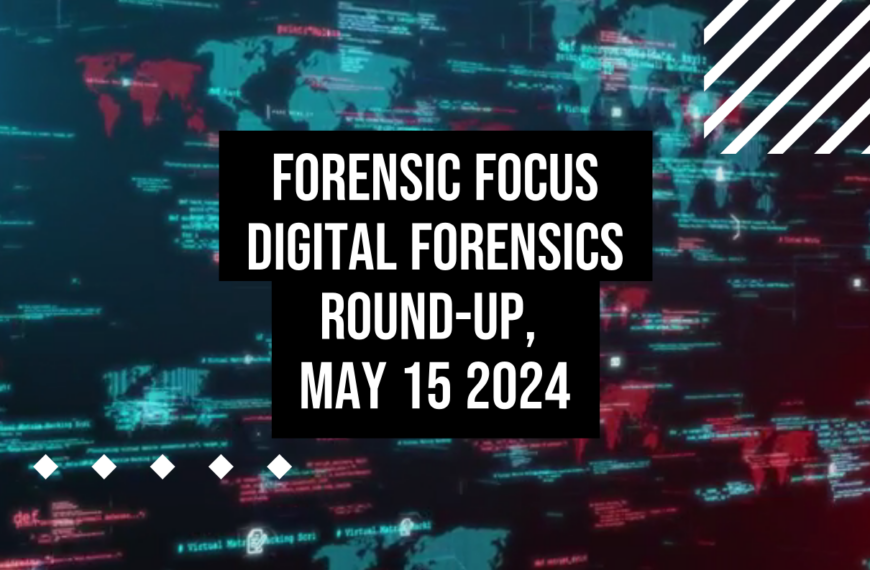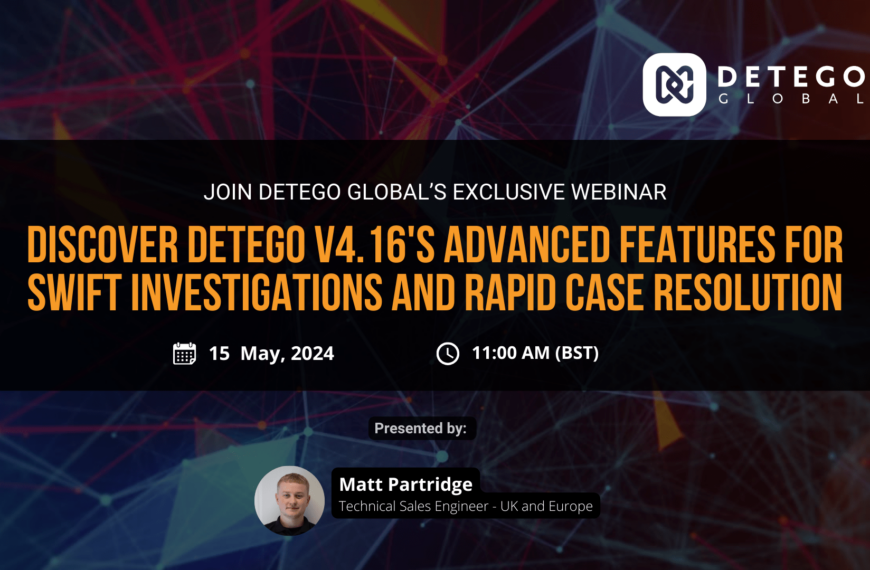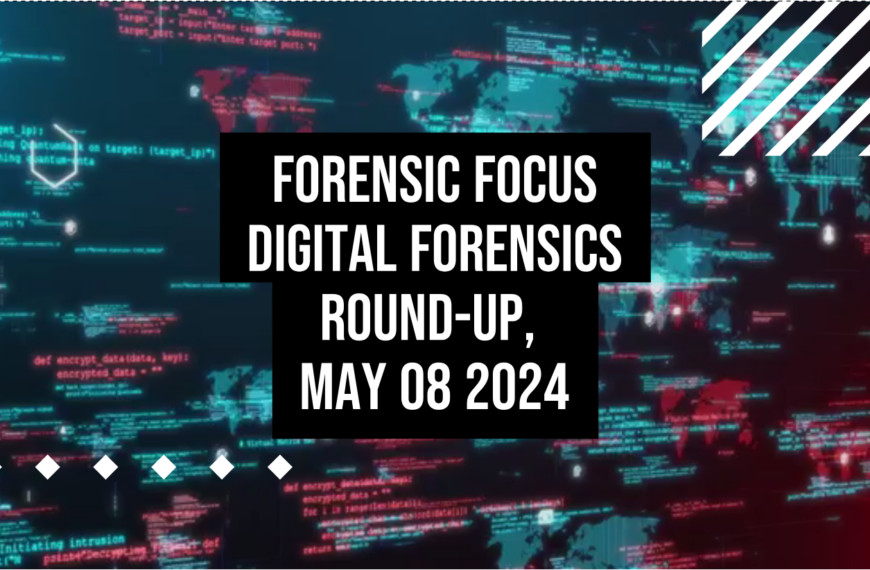FF: Tell us about your background and how you ended up as the Regional Forensic Video and Audio Manager at South West Forensics.
After graduating with a Bachelor of Arts (Hons) degree in New Media Design (combination degree covering the topics of Video Editing/Processing, Special Effects, Web Design, Typography and Audio Design), I felt a bit unsure about my career path. I loved the work, but a highly repetitive, production house environment wasn’t overly appealing.
I ended up taking a role as a Sales Consultant, working to help small and medium sized businesses backup and secure their critical data, which for a time was enjoyable and provided me with valuable experience in relationship management, negotiation and how to navigate critical IT environments; but ultimately, I didn’t feel that “sales” was going to be the right fit for me.
For interest’s sake I decided to have a look on the Wiltshire Police website one evening to see if they were looking to recruit Police Officers (having been inspired by my mother and father-in-law who were a Nurse and Police Officer respectively), and as luck would have it the role of “Video Support Technician” had just been posted. It was as though the stars had aligned, just for me. An opportunity to work for the police make a difference AND an opportunity to use my degree at the same time.
Fast forward seven or eight years. Following several positive adjustments to my responsibilities and the creation of the South West Forensics Collaboration, I found myself a Digital Forensic Technician working in the rebranded Digital Video Unit (DVU) in Wiltshire Police. With expertise in Multimedia Forensics, Mobile Telephony Forensics and experience gained through a College of Policing R&D project in relation to ADSL Router Investigations, I decided to pursue a management position in the Avon & Somerset Police DVU when it became available. Having collaborated and trained with their technicians on numerous occasions, I was thrilled at the prospect of working more closely with them and leading them through the upcoming challenges associated with ISO 17025 implementation. I submitted a formal application, participated in the interview process, and was ultimately successful in obtaining the position.
I have been in this role now since 2017 and have had an opportunity to work with some of the most intelligent, motivated, and professionally excellent people I’ve ever known. Life is good.
FF: What does your job involve? What does a typical day look like?
My days incorporate a range of essential tasks like managing case load, supervising my team, and attending meetings; however, the variety of the work ensures that no two days are identical.
As a small team responsible for the complex recovery, processing, analysis, enhancement, and courtroom presentation of multimedia evidence for the entire force (excluding MCIT, who have their own video team, which we collaborate with), we are in high demand.
One morning, we might be collaborating with a team of officers to define, prioritise and assist them in the execution of their trawl strategy with complex data recovery. Another day, we could be working on a CCTV-heavy investigation, enhancing video and audio evidence to assist in identification. We will also likely be building interactive court presentation products, or on other days could be in our workshop taking multiple password protected or damaged CCTV systems apart to acquire their data.
No two days in Video Forensics are the same, and it’s the variety of cases, the range of problem-solving and the amazing people that I love most about the job.
FF: What are some of the tools or software applications that you use for conducting digital forensic investigations? Which features or capabilities do you rely on most?
Our department, like any other digital forensics unit, utilises a comprehensive toolkit and established procedures to conduct investigations. These tools encompass both commercially available industry-standard software, like the Adobe Suite and various conversion and imaging applications, and specialised forensic data acquisition, processing, and enhancement tools from leading vendors like Amped Software, Magnet Forensics, and Cedar Audio.
Additionally, our force has implemented Replay from Amped Software, enabling officers to directly review, redact, annotate, and report on CCTV evidence using their force issue laptops. This has significantly improved officers’ investigative response times and reduced the volume of submissions requiring processing by my team. Leading on the development and deployment of this system within Avon & Somerset has been a personal highlight of my career, as it has yielded a wide range of benefits to our Officers, Staff and Victims.
FF: Is there a case you’ve worked on which is particularly memorable because of the role digital forensics played in the investigation?
With fifteen years (or so) experience in digital forensics, pinpointing a single case is challenging as all of our casework ultimately contributes to the investigative process, and the more memorable ones are probably not best spoken about on a public forum.
While it isn’t an investigation, I would say that the work I am most proud of was the small part I was able to play in supporting the National Police Chiefs Council (NPCC) CCTV Working Group in the creation of the NPCC Framework for Video Evidence. Being involved in and assisting with the development of a policy of that magnitude with industry experts whom I admire from across for our industry was a pleasure and a privilege and I’m thrilled with the positive change it is now delivering across our industry.
FF: How do you stay up to date with the latest technological advancements and techniques in digital forensics? Is training to achieve certifications useful?
Managing a busy forensic department presents a challenge in allocating sufficient time to maintain my professional competency in relation to evolving technologies and processes. To address this, I dedicate time for continuous professional development. During those sessions, I participate in online workshops, engage with industry forums, make use of the training and development tools available to me locally and collaborate with my national counterparts to stay abreast of developments within our field. Fortunately, our industry has a culture of knowledge sharing through annual conferences, regular online workshops, and opportunities to exchange best practices with other digital forensics practitioners through visits or hosting events.
While I acknowledge that software vendor specific certification training is valuable in keeping pace with advancements in software, policy, and best practice, I believe the most effective approach to maintain my own professional competency is through extensive networking, mentoring, coaching, and up-to-date leadership certification. Regular engagement with managers and technicians within our collaboration and across the country has allowed me to gain valuable insights into emerging problems and potential issues before they escalate, and the Level 5 Operations Management course which I completed really helped me to ensure that my leadership processes were aligned to industry best practice.
FF: What advice would you give to someone considering a digital forensics career in law enforcement?
The most significant adjustment for new recruits in law enforcement is the expectation of professional conduct outside of work hours. I frequently advise potential joiners that joining the police service is closer to a lifestyle choice than simply taking on an interesting job. This is because after becoming a member of the force, you become an ambassador for the organisation.
Demonstrating conduct that aligns with the College of Policing’s Code of Ethics, both on and off-duty, will mean that you will be working within a service that is more interesting and valuable than any other, while ensuring you always uphold the expectations of the organisation and the public around standards of professional behavior.
Having personally experienced the sense of purpose that comes from knowing my work directly benefits victims of crime, I can confidently say that very few professions offer the opportunity to reflect with the assurance that you have made a positive impact on the lives of others and the world around you.
FF: What do you enjoy doing in your spare time?
Spare time? What is this spare time you speak of? I run a busy Digital Forensics department, have a young family and a dog. I don’t have spare time.
All jokes aside, the time I have out of the office generally consists of being in the beautiful Wiltshire countryside with my family and my dog, which is what I love doing more than anything as it gives me a chance to decompress and focus on the people who I am ultimately doing this for.
Everything my team and I do goes towards creating a safer community for my family and friends, and being able to directly affect their safety is an extremely privileged position to be in.















